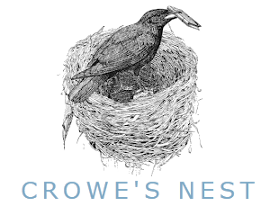 |
| Because you know you're most likely to get "the call" while on the beach. ;) By Peter Drier (Flickr) [CC-BY-2.0], via Wikimedia Commons |
My first piece of advice is to download FROM THE QUERY TO THE CALL by Elana Johnson. (Scroll down to the bottom of that page on that link-- there's a download button.) Not only is it free, but it saved me so many times! It even has information like what to name your file and how to format your email when an agent asks for pages of your manuscript. It contains a list of questions to ask an agent. When I got The Call, most of my questions came from there. I didn't ask all the questions--- just the ones that were important to me. You may have completely different questions that are important to you. Here's a few, though, that I think are big ones worth talking about:
Do you think my book is ready for submission, or will it need edits first?
How extensive will my revisions with you be?
I think it's also important to find out not just about how many edits they think your book needs, but how editorial they are in general. Not that a highly editorial agent is generally better or worse than one who makes minor suggestions (or none at all), but it's likely one or the other will be better or worse FOR YOU. So think about what you really want and need.
How many people do you represent?
This is another one where there's no right or wrong answer in general, but there's probably a right or wrong answer FOR YOU. An agent with a ton of clients will obviously be busier, and so you'll likely communicate less. But they sell a lot more, so generally have more contacts and a greater relationship with those contacts. As the amount of communication goes, it's likely to be vastly different between an agent with a ton of clients versus an agent with a few. So try to anticipate what you want from an agent. Do you want your agent to "check in" frequently, or are you okay going possibly months during the slow times without hearing from them? Are you looking for someone you can be buddy/buddy with, or someone with whom you communicate only when you have a need?
How long does it usually take you to respond to an email?
This is important no matter how frequent your communication is with your agent. I think that the number one complaint among writers who are thinking about breaking up with their agent is that the agent takes forever to respond to emails.
If you don't sell my book, what happens?
I had two agents offer. Both were powerhouse agents from powerhouse agencies. And that's about where their similarities ended. One was highly editorial, one was not. One tended to sub to a lot of editors at once, one to only a few (more on this in a second). Both had entirely different plans for my book, but they were both GOOD PLANS. I had a really hard time deciding for quite a while--- until I got their answers to this question.
I asked my agent that during our initial phone call, and she said, "Then we will go on another round. And another and another until either we've exhausted every possibility, or you tell me that you want to stop and work on submitting a different book."
The other agent's answer: "We would probably try a second round of editors to see if we could get an offer in that batch. If that didn’t happen, we’d talk about what other projects you have in the works. In these scenarios, I will often stay with the author for a second book and not issue a parting if the first doesn’t work."
Can you believe the difference between two agents?! That was a deal breaker for me. I think the answer to that is vitally important. It tells how much they are really taking on YOU versus YOUR BOOK better than anything else. I think it's important that an agent sees you as someone whose career they can build.
To how many editors do you generally submit a manuscript?
I've heard a lot of numbers on how many editors an agent normally subs to on the first round. It seems a lot submit to somewhere around twelve. There are agents that only sub to five, though, which takes your chances way down. I don't know if they just don't have as many contacts, or if there's a good reason to do it for that particular book, or if it's simply a preference, but it's definitely a huge factor and is something to ask about.
What if I wrote a book in a different genre?
If you've ever thought about writing in another genre, and think it's a possibility you will in the future, definitely ask! My agent reps kidlit, and rarely reps adult. When I asked this question, she said that one of her clients writes both kidlit and adult--- she reps the kidlit, and a different agent reps her adult stuff. If you're ever thinking you might genre jump / age range jump, it's helpful to know if they would rep both, or if they'd be open to you having a second agent.
How agressively do you seek foreign rights?
Ask what is normal for him/her and his/her agency, and how they think your book might do in foreign markets. I know that right now foreign rights would just be icing, but trust me: when you get there, it'll be important to you.
A few others to consider:
How involved are you in brainstorming future ideas for books / how to promote / career planning?
What would your expectations for me be if we decided on a partnership?
Can I contact a couple of your clients to get a feel of what I should expect?
Is there anything else I should know that will help with my decision?
These aren't the only questions you should ask, of course. Make sure you download Elana's book! It is seriously helpful, and has a lot more questions for you to consider.
And one last thing that's not really a question, but so important.
How does the agent make you feel?
Back to the decision between my two. One made it clear that she was the boss. That I needed to jump if she said jump. The other made it clear that she was my partner. That we would work through things together. As I was getting paper to make a pros / cons list about which agent I should choose, my hubby gave me a look like he couldn't believe I was even going there--- and not because I don't go there often--- but because to him, the choice was clear. He said, "When you talk to / about the other agent [the boss one], you're stressed out, worried, and unsure of yourself. When you talk to / about Sara [the partner one], you're calm and peaceful and excited." Um... Duh. My choice really was made from the start. I don't know why I had to get all technical about it. PAY ATTENTION TO HOW THEY MAKE YOU FEEL. This is the person you'll need to go to when you need to be talked down from a ledge when things get crazy. You do not want to be afraid to email them.
A few other non-question things:
Keep in mind that a LOT of agents ask for exclusive revisions, or an Revise and Resubmit (R&R) before they sign with you. If they do, don't let that make you feel like your book just wasn't good enough! If the agent tends to be very editorial, that's the kind of thing they'll tend to do with every potential client. They want to see how you'll work together editorially first. But if they ask for an exclusive, the phone call might be focused on the edits, not on them as an agent. Don't get flustered, and don't let them skip past the part where you ask questions. You want to make sure if you do enter into an exclusive, that it's someone YOU want to continue with.
And figure out exactly what you want in an agent BEFORE you get The Call, or the email requesting The Call. If you have one agent offering, it's easy to get so excited that you don't really care what the answers to your questions are-- you just want them to sign you! But if they aren't the right agent for you, signing with them is a much worse road to travel than continuing to query is. And if you don't decide ahead of time what exactly you want/need in an agent, it'll be so much harder to make a logical choice (instead of just an emotional one).
When you get that call, remember most of all that they're a person! And chances are, that phone call makes them nervous, too.
















































